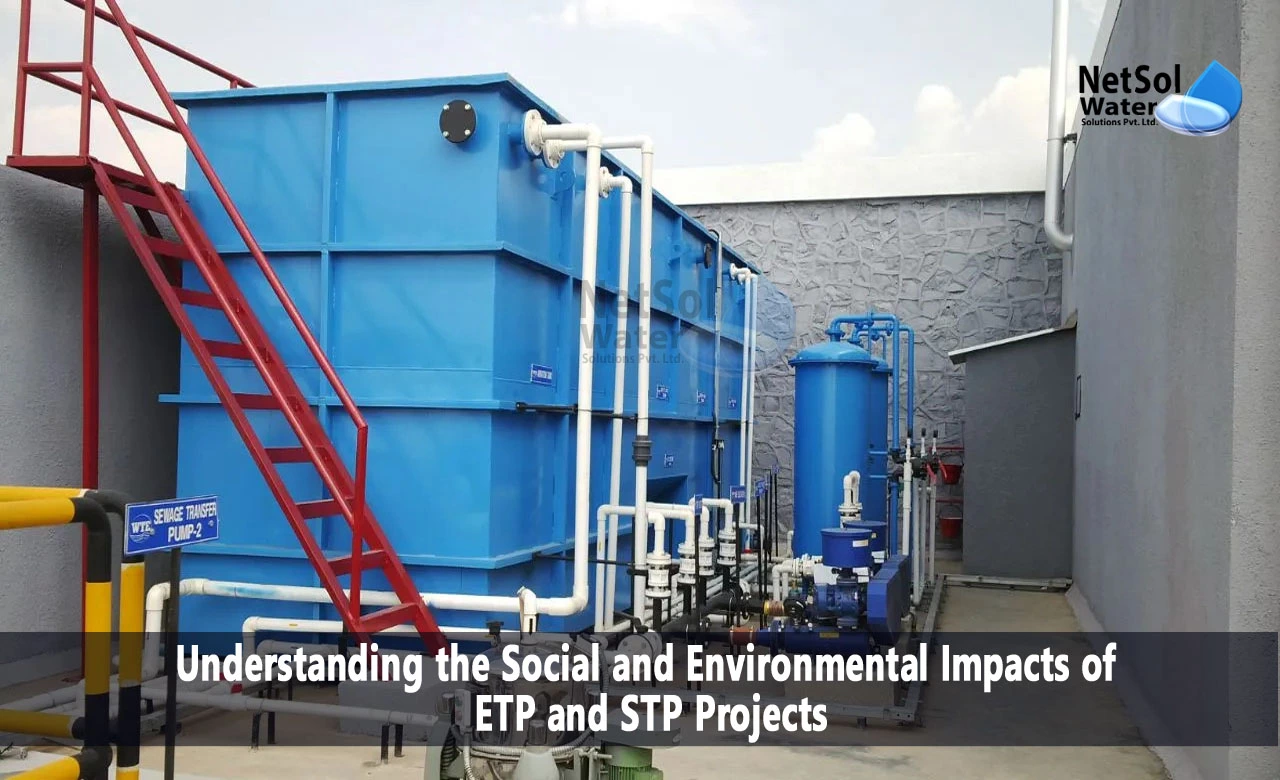What are the Social and Environmental Impacts of ETP and STP Projects?
In a generation of growing situations for environmental conservation and sustainable development, Effluent Treatment Plants (ETPs) and Sewage Treatment Plants (STPs) have won full-size attention. These crucial infrastructure tasks play an important role in dealing with wastewater and business effluents, ultimately assisting in protecting the environment and human health. However, it is crucial to study the social and environmental impacts of ETP and STP initiatives to understand their standard effectiveness and capacity challenges.
What are ETPs and STPs?
Before delving into their impacts, let’s briefly outline ETPs and STPs:
1. Effluent Treatment Plants (ETPs): These centres are designed to treat and control the effluents generated by industries. They do away with contaminants and pollution from business wastewater to save you their discharge into herbal water our bodies.
2. Sewage Treatment Plants (STPs): STPs are chargeable for treating domestic and municipal wastewater. They purify sewage water to make it safe for discharge into the environment or, in a few instances, for reuse.
Social Impacts
1. Improved Public Health: STPs assist in lessening the unfold of waterborne illnesses by treating sewage water earlier than its launch. Communities gain from progressed sanitation and lower fitness risks.
2. Employment Opportunities: The creation and operation of ETPs and STPs create process opportunities, in particular in regions with high unemployment prices.
3. Enhanced Quality of Life: Cleaner water bodies and reduced water pollutants improve the general pleasant of existence for close-by residents, leading to more incredible network pride.
4. Noise and Odor Concerns: During creation and operation, ETPs and STPs can generate noise and odors which can negatively affect neighborhood groups. Mitigation measures ought to be implemented to address these issues.
5. Land Use Conflicts: The want for land to construct ETPs and STPs can occasionally cause conflicts over land use and displacement of neighbourhood groups.
Environmental Impacts
1. Water Quality Improvement: Both ETPs and STPs play a crucial position in decreasing the infection of natural water bodies. This helps defend aquatic ecosystems and biodiversity.
2. Conservation of Resources: Treated effluents may be reused for various purposes, which include irrigation, business tactics, and cooling water, which conserves freshwater sources.
3. Energy Consumption: ETPs and STPs require energy for his or her operation, and the energy source may have environmental implications. Implementing energy-efficient technology can mitigate this impact.
4. Emission of Greenhouse Gases: The biological strategies in STPs produce methane, a robust greenhouse gas. Capturing and using methane can help reduce these emissions.
5. Chemical Use and Disposal: ETPs can also involve the usage of chemicals for treating commercial effluents. Proper handling and disposal of those chemical substances are essential to save you from pollution.
Challenges and Mitigation Strategies
To minimise the harmful social and environmental impacts of ETP and STP tasks, numerous strategies may be hired:
1. Community Engagement: Involving neighbourhood communities in planning and selection-making can address concerns and ensure their hobbies are considered.
2. Advanced Technologies: Employing contemporary treatment technologies and power-green gadgets can reduce the environmental footprint of ETPs and STPs.
3. Monitoring and Regulation: Strict tracking and regulatory oversight can assist in maintaining compliance with environmental standards and deal with problems promptly.
4. Resource Recovery: Encourage the reuse and recycling of treated water and recovered resources (which include methane) to sell sustainability.
5. Environmental Education: Promoting cognisance and schooling about the significance of wastewater treatment and its fantastic impacts on the surroundings can garner public aid.
Conclusion
Effluent Treatment Plants and Sewage Treatment Plants are vital components of contemporary infrastructure that help protect the surroundings and public fitness. While they bring numerous blessings, they pose social and environmental challenges. Careful planning, green era use, network engagement, and regulatory oversight are essential to mitigate the harmful impacts and make sure that ETPs and STPs continue to play a vital position in sustainable improvement. Balancing these factors is the crucial thing to figuring out the potential of these tasks and minimising their drawbacks.
Netsol Water is Greater Noida-based leading water & wastewater treatment plant manufacturer. We are industry's most demanding company based on client review and work quality. We are known as best commercial RO plant manufacturers, industrial RO plant manufacturer, sewage treatment plant manufacturer, Water Softener Plant Manufacturers and effluent treatment plant manufacturers. Apart from this 24x7 customer support is our USP. Call on +91-9650608473, or write us at enquiry@netsolwater.com for any support, inquiry or product-purchase related query.



